Home Remedies For Goiter: 17 Ways To Shrink Thyroid Swelling
Natural approaches to optimize thyroid function and treat goiter.

Image: Midjourney/ StyleCraze Design Team
Goiter is characterized by swelling of the thyroid gland. Though goiter may appear to be a frightening illness, by recognizing the symptoms, causes, and treatment options, you can take charge of your thyroid health and manage it effectively. In this article, we have listed the most effective home remedies for goiter. We have also discussed the causes of goiter, its symptoms, and who is most at risk of developing it. Scroll down to check them out!
In This Article
Home Remedies For Goiter
1. Apple Cider Vinegar
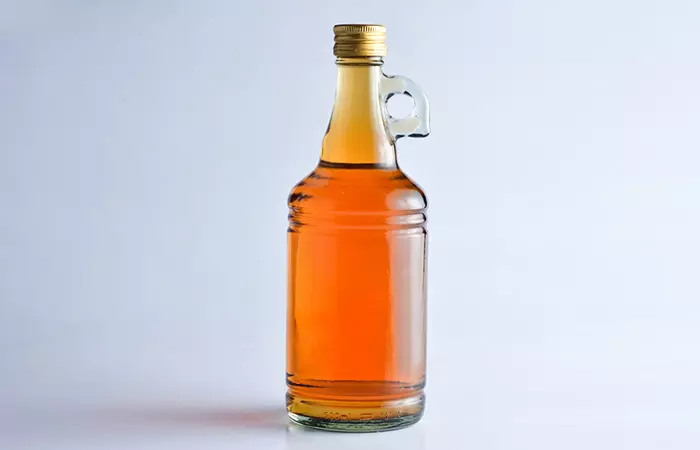
You Will Need
- 1 teaspoon apple cider vinegar
- 1/2 teaspoon honey
- A glass of warm water
What You Have To Do
Mix the honey and vinegar with water and drink the mixture, preferably on an empty stomach.
How Often You Should Do This
Do this every day in the morning.
Why This Works
Apple cider vinegar is mildly acidic and restores the pH balance in the body
(1). It detoxifies the body, and this indirectly helps to increase iodine absorption and reduce the thyroid swelling.
2. Castor Oil
You Will Need
A few drops of castor oil
What You Have To Do
- Massage the neck area with the oil gently.
- Leave the oil on overnight.
How Often You Should Do This
Repeat this every night before going to bed.
Why This Works
Castor oil has anti-inflammatory properties that can help reduce swelling in the thyroid gland (2). It detoxifies the liver and helps in conversion of T4 to active T3.
3. Coconut Oil
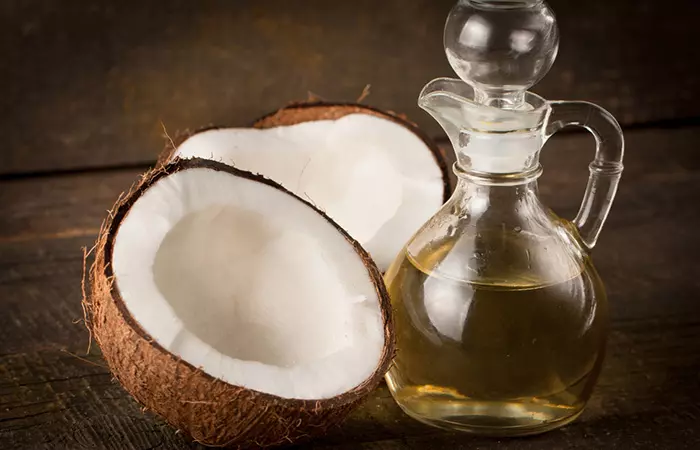
Virgin coconut oil contains high levels of lauric acid, a medium-chain triglyceride, which is converted into monolaurin, and has antimicrobial and anti-inflammatory properties as well as improves metabolism (3). You can add it to your hot drinks, smoothies, and use it as a salad dressing as well as cooking.

4. Bentonite Clay
You Will Need
- 2-3 tablespoons bentonite clay
- Water
What You Have To Do
- Make a paste by adding enough water to the clay powder and mix well.
- Apply this paste on the neck and let it dry.
- Wash it off with plain water.
How Often You Should Do This
Apply this clay mask once every 2-3 days and observe the changes in the swelling.
Why This Works
It is a natural clay that helps to cleanse the body of toxin build-up and has effective antimicrobial properties (4).
5. Seaweed

You Will Need
A handful of seaweed
What You Have To Do
Boil a handful of seaweed to make a salad. Add dressing as per your choice.
How Often You Should Do This
Include it once or twice a week in your meal. Do not overdo it.
Why This Works
Seaweed is a good source of iodine that helps to produce thyroid hormones.(5). Seaweed also contains tyrosine, a supportive amino acid that aids the production of thyroid hormones (6).
6. Dandelion Leaves
You Will Need
- A handful of dandelion leaves
- 1 tablespoon clarified butter (ghee)
- Water
What You Have To Do
- Grind the leaves with some water to make a paste.
- Add the ghee to this and heat the mixture for a few minutes until it becomes lukewarm.
- Apply this on the neck and keep it on for 15-20 minutes.
- Rinse it off.
How Often You Should Do This
Repeat this every day for a week or two.
Why This Works
Dandelion leaves have antioxidant properties and exhibit anti-inflammatory effects (7), (8). Hence, this paste can reduce the swelling of the thyroid gland and relieve the associated symptoms.
7. Juice Recipes
(a) Lemon Juice
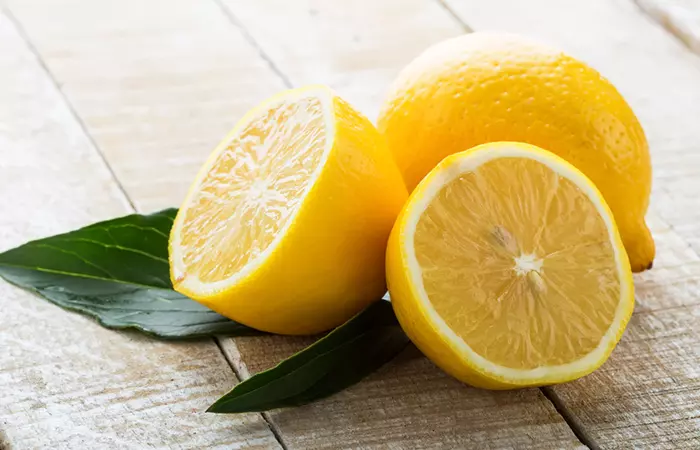
You Will Need
- 1 tablespoon lemon juice
- 1 clove garlic
- 1 teaspoon honey
What You Have To Do
- Crush the garlic and mix it with the lemon juice and honey.
- Drink this in the morning.
How Often You Should Do This
Do this every day in the morning, preferably on an empty stomach.
Why This Works
Both lemon and garlic contain anti-inflammatory compounds. This remedy also helps to remove any toxins that have accumulated in the body due to infections by eliminating the microbes with their antimicrobial and anti-inflammatory properties (9), (10).
(b) Pineapple Juice
You Will Need
- 4-5 pineapple pieces
- 1 medium-sized carrot
- 2 tomatoes
What You Have To Do
- Blend everything to get a smooth juice. You can add some water to adjust the consistency.
- Drink this juice, either at room temperature or slightly chilled.
How Often You Should Do This
Drink a glass of this pineapple blend every day.
Why This Works
Pineapple ingestion can improve the hormonal thyroid status and reduce the size of the goiter (11).
8. Ashwagandha
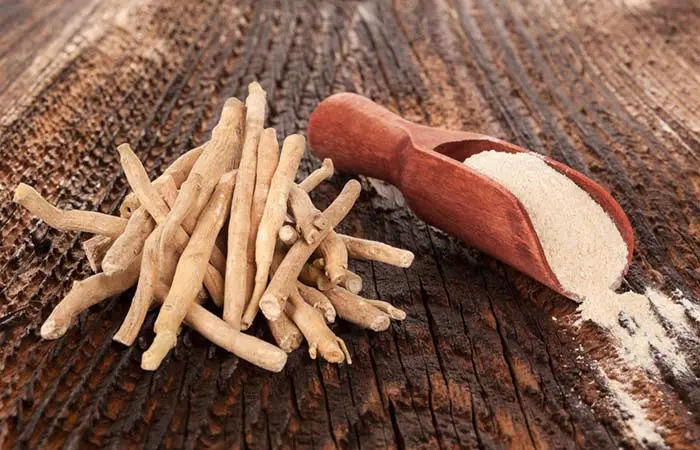
You Will Need
- 2 tablespoons ashwagandha bark powder
- 160 ml water
What You Have To Do
- Add the Ashwagandha bark powder to water and boil this until the concoction reduces to 40% of its original volume.
- Strain and divide the concoction.
- Drink one portion early in the morning, before breakfast, and the second part in the evening.
- You can also add this powder to milk or smoothies.
How Often You Should Do This
Repeat this every day.
Why This Works
Ashwagandha is a powerful Ayurvedic herb that helps to boost the functioning of the thyroid gland
. It increases the production of T3 and T4 hormones (12). Normally, chronic stress increases the levels of cortisoli A steroid hormone produced by the adrenal glands that helps the body deal with stressful situations. , which impairs proper functioning of thyroid hormones. Ashwagandha powder fights this stress to stimulate endocrine secretions (12). Therefore, it is one of the most effective natural remedies for hypothyroidism.
9. Moringa (Malunggay)
You Will Need
- 1 tablespoon dried moringa leaves
- A cup of hot water
What You Have To Do
- Steep the leaves in hot water for a few minutes.
- Strain and drink this decoction.
How Often You Should Do This
Drink moringa tea once every day.
Why This Works
Moringa leaves can help regulate the production of thyroid hormones (13). This herbal tea has an earthy taste and is very refreshing for the body.
10. Turmeric
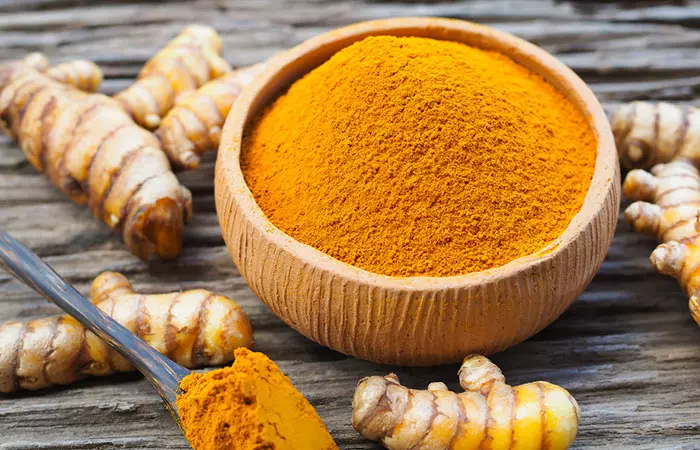
You Will Need
- 1/2 cup turmeric powder
- 1 cup water
- 1 1/2 teaspoons black pepper powder
- 70 ml cold pressed olive oil or coconut oil
What You Have To Do
- Heat the water in a pan and add turmeric powder to it.
- Cook this slowly for 5-10 minutes until you get a thick paste.
- Add the black pepper and oil and stir well.
- Remove from the flame and store in an airtight container.
- Have a teaspoon of this paste.
Note
: This golden paste can be stored in the refrigerator for 1-2 weeks.
How Often You Should Do This
Repeat this twice a day.
Why This Works
Turmeric is a potent spice that not only adds color and flavor to food but also possesses multiple beneficial properties that improve health. Studies have found that turmeric could be useful in goiter treatment (14).
11. Flax seeds
You Will Need
- 2-3 tablespoons flaxseeds
- Water
What You Have To Do
- Grind the flaxseeds and make a paste with a little bit of water.
- Apply this paste on your neck and let it stand for 20-25 minutes.
- Wash and pat the area dry.
How Often You Should Do This
Do this once every day until the swelling goes away.
Why This Works
Flax seeds contain alpha-linolenic acid, which forms resolvins that have anti-inflammatory properties (15). These properties may help reduce swelling.
Caution: Do not consume flax seeds without consulting your doctor as they may have a contrary effect.
12. Neck Exercise

Stretching exercises for the neck are also known to aid in the treatment of goiter. These exercises can help stretch the muscles that are connected to the thyroid gland and reduce the swelling.
- Upward Neck Stretch– Sit on a chair and lift your chin towards the ceiling. Stretch the neck as much as possible and then stay in that position for a few seconds. Repeat this exercise 10-12 times.
- Sideways Neck Stretch– Slowly bend your neck to the side so that the ear touches your shoulder. Stretch as much as possible and then repeat on the other side. Do 10 repetitions on each side.
Note:
Do not exert yourself when trying to do these neck exercises. Stretch as much as you can without causing any discomfort to yourself. If you experience any pain or discomfort, stop the exercise immediately.
13. Garlic
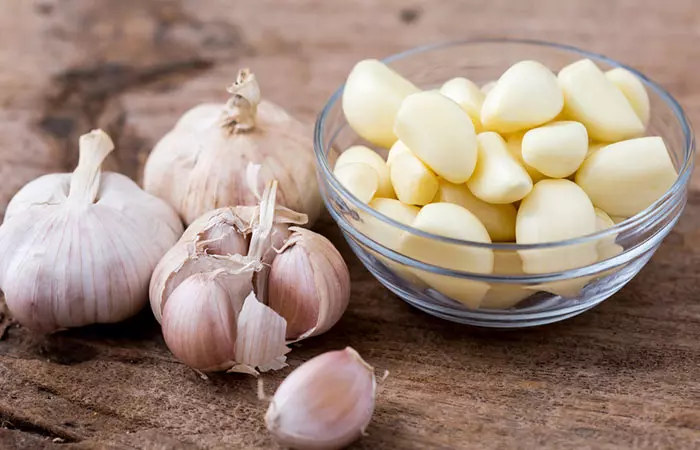
You Will Need
3-4 garlic cloves
What You Have To Do
Chew garlic cloves as they are in the morning. If you feel that they are too pungent, crush the cloves and add some honey to them before ingesting.
How Often You Should Do This
Do this every day in the morning.
Why This Works
Garlic stimulates the production of glutathione in the body as it contains selenium, which is required for the healthy functioning of the thyroid (16).
 Quick Tip
Quick Tip14. Lemon Balm Tea
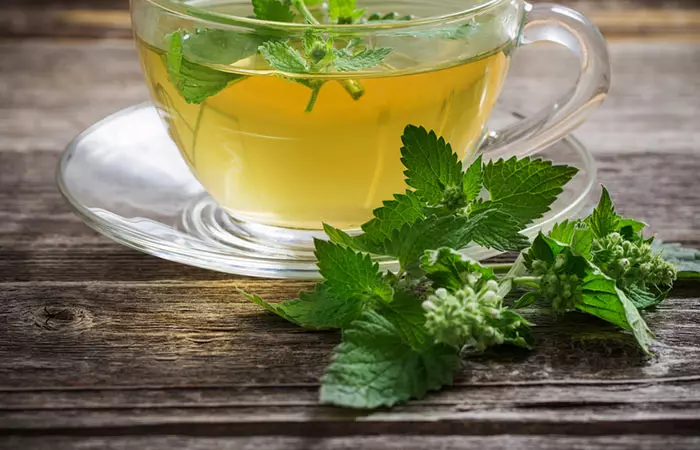
You Will Need
- 2 tablespoons dried lemon balm (or 2 teaspoons fresh lemon balm)
- A cup of hot water
- Honey
What You Have To Do
- Pour the hot water over the herb and let the tea steep for a few minutes. Make sure to keep the lid on while making the tea as it will prevent the aromatic oils of the balm from escaping with the steam.
- Strain the decoction and add honey for taste.
- Sip on this warm herbal tea.
Be sure to keep the lid on while making the tea, as it will prevent the aromatic oils of the balm from escaping with the steam.
How Often You Should Do This
Drink 2-3 cups of this herbal tea every day until the goiter symptoms are gone.
Why This Works
Lemon balm is an effective stress management booster. It reduces psychological stress, which is the most common reason for developing thyroid disorders (17).
15. Nuts
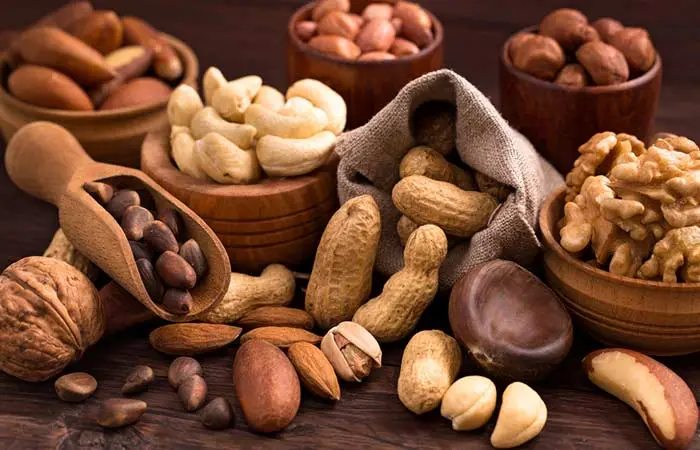
You Will Need
A handful of nuts
What You Have To Do
Soak a handful of nuts overnight or munch on them as it is.
How Often You Should Do This
Have a handful of nuts either as a wake-up snack or in between meals.
Why This Works
Nuts are not only rich in omega-3 and omega-6 fatty acids but also exhibit anti-inflammatory properties (18). Among all nuts, Brazil nuts are the richest sources of selenium (19). Selenium acts as a stimulating factor in the conversion of T4 hormone to the most active form – T3 hormone (20).
16. Fish Oil
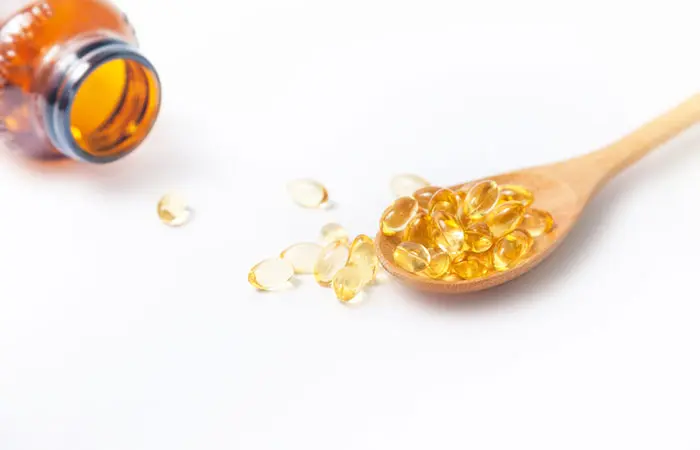
You Will Need
Fish oil supplement either in capsule form or in liquid form
What You Have To Do
Take a teaspoon of fish oil every day.
How Often You Should Do This
Once a day.
Why This Works
Fish oil is rich in omega-3 fatty acids, which help to metabolize thyroid hormone in liver (21).
17. Motherwort
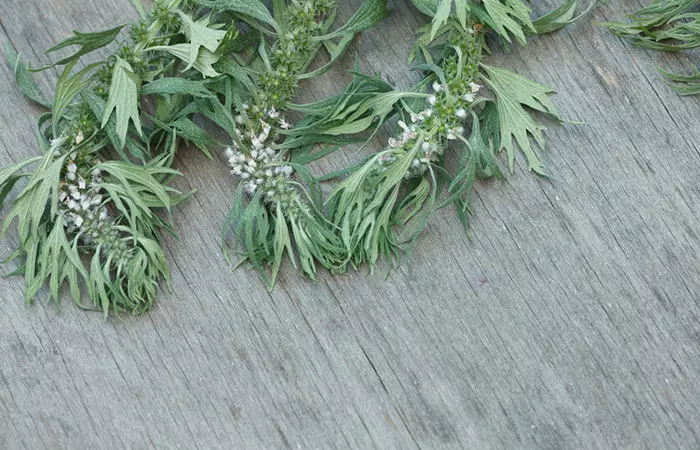
You Will Need
- 1/2-1 teaspoon motherwort herb
- 1/2 teaspoon honey
- A cup of hot water
What You Have To Do
- Brew motherwort tea and add honey for taste.
- Drink this.
How Often You Should Do This
Drink motherwort tea twice a day for best results.
Why This Works
Many people experience palpitations and fast heartbeat due to hyperthyroidism. These symptoms of goiter can be alleviated with motherwort (22).
Besides these remedies, it is important to make a few lifestyle changes to improve your health. Sushmita, a beauty and lifestyle vlogger, elaborated the necessary changes she had to make to improve her thyroid condition. She started sleeping early, switched to a balanced and healthy diet and an active lifestyle, and improved her water intake. She said, “These changes and natural remedies really worked for me (i)”
We would like to reiterate that while these home remedies for goiter will help, you should ensure that you use them in conjunction with the medications prescribed by your doctor. Also, make it a point to be extremely careful about your diet. You should be looking to eat foods rich in iodine and selenium, while eating limited quantities of goitrogenici A substance that triggers the pituitary gland to release excess thyroid-stimulating hormones and cause goiter. foods. And don’t forget the neck exercises!
Home remedies for goiter can be highly effective, particularly if you know how the thyroid gland works and how important it is to general health. Scroll down to know more.
About The Thyroid Gland
The thyroid gland is a small butterfly-shaped gland present in the lower front of the neck
(23). This gland is responsible for secreting thyroid hormones, which maintain our body’s metabolism. Insufficiency or excess of thyroid hormones leads to malfunctioning of the thyroid gland.
 Did You Know?
Did You Know?Key Takeaways
- Goitre is characterized by a swollen thyroid gland due to impaired thyroid functioning.
- Symptoms include visible swelling at the base of the neck, difficulty in breathing or swallowing, and unexplained weight loss.
- Natural ingredients like turmeric, seaweed, and ashwagandha help treat the swelling.
- Regular neck exercises and stress management can also help treat goiter.
What Is Goiter?
Goiter is a medical condition that is characterized by the enlargement or swelling of the thyroid gland (24). This may happen due to hypothyroidism (underactive thyroid glands), hyperthyroidism (overactive thyroid glands), or euthyroidism (normal thyroid functioning). In simpler words, the lack of and also the excess of thyroid hormone can cause the gland to swell up. It is usually not a painful disease but brings along many other symptoms that can disrupt the normal functioning of your body .
There are several types of goiter:
- Endemic goiter: It occurs in specific regions where there is a deficiency of iodine in the soil and water. As a result, the thyroid gland enlarges in an attempt to produce more thyroid hormone.
- Sporadic goiter: It is often caused by factors such as autoimmune disorders, genetic predisposition, or medications.
- Toxic goiter: This condition occurs due to overactive nodules in the thyroid gland that produce too much thyroid hormone. It can lead to symptoms such as rapid heartbeat, weight loss, and irritability.
, MD, a specialty registrar at Addenbrookes Hospital, says, “If goiter is left untreated, it can continue to grow and cause compression of nearby structures, such as the trachea or esophagus. This can lead to difficulty breathing or swallowing.”
Medical intervention is the most sought-after method for goiter treatment. Dr. Afzal says, “The treatment for goiter depends on the underlying cause. In some cases, it may not require treatment if it is small and does not cause symptoms. If it is causing symptoms, treatment may involve medications, surgery, or radioactive iodine therapy.”
He adds, “Medications may be used to treat an overactive thyroid or an underactive thyroid, which can cause goiter. Surgery may be necessary if the goiter is causing compression or breathing difficulties. Radioactive iodine therapy may be used to shrink the goiter by destroying the overactive thyroid cells.”
Hence, it is important to consult with a healthcare professional to determine the appropriate treatment for a goiter, as the fastest way to treat it may depend on the underlying cause.
But, with the use of simple home remedies, you can alleviate the symptoms and assist the prescribed medicines to treat the problem faster.
Let us look at the causes and symptoms of goiter first. We shall then delve into the home remedies for goiter.
Iodine is one of the most important minerals to make thyroid hormones. The gland cannot make enough thyroid hormones if it does not get enough iodine from diet. Hence, iodine deficiency is the primary cause of developing goiter (25).
Dr. Afzal says, “Salt that is fortified with iodine can help to prevent goiter caused by iodine deficiency. However, if goiter is caused by another underlying condition, such as an autoimmune disorder, simply increasing iodine intake may not be effective in treating it.”
Some of the other causes of goiter are as follows:
- Autoimmune diseasesi A condition in which the body’s immune system cannot differentiate between healthy cells and foreign cells and attacks its own cells. , such as Hashimoto’s diseases and Graves’ disease, wherein the body’s immune system attacks the thyroid hormone production
- Genetic defects
- Injury or any infection to thyroid glands (26)
- Radiation therapy for cancer
- Certain medications
- Benigni A term used to indicate an abnormal growth of cells or tumors that is non-cancerous and cannot invade nearby tissues. tumors or thyroid cancer (26)
Dr. Afzal notes, “Not all goiters are cancerous, but some types can be a symptom of thyroid cancer. It is important to consult with a healthcare professional to determine the underlying cause and rule out any potential malignancies.”
Who Are At Risk Of Goiter?
- Women over the age of 40
- Family history of autoimmune disease
- People with low iodine in diet (27)
Goiter Symptoms
If you notice the following symptoms, it is quite possible that you have goiter:
- Coughing for no reason
- Having a constricted feeling in the throat
- Hoarseness of voice
- Discomfort or pain while swallowing
- Mood swings
- Difficulty in swallowing (24)
- Visible swelling at the base of your neck
- Unexplained weight loss or weight gain
- Difficulty in breathing (24)
- Puffy face (24)
Please remember that many of these symptoms are also associated with other health conditions. Hence, do not assume you have goiter without getting a confirmed diagnosis from your doctor. In the interim, you may take some precautionary steps to prevent goiter and thyroid-related health issues. Check them out in the next section.
Diagnosis Of Goiter
Diagnosis involves a thorough physical examination by a healthcare provider. During this exam, your doctor will feel your neck to assess the size and shape of your thyroid gland.
Your doctor may also order blood tests to check your thyroid hormone levels. These tests can help determine whether your thyroid gland is producing too much or too little thyroid hormone.
If your doctor suspects that you have goiter, they may also recommend imaging tests, such as an ultrasound. This test can help determine the size and shape of your thyroid gland with more accuracy, as well as whether there are any abnormalities or nodules present in the gland.
In some cases, your doctor may recommend other imaging tests, such as a CT scan or MRI, to get a more detailed view of your thyroid gland.
In the interim, you may take some precautionary steps to prevent goiter and thyroid-related health issues. Check them out in the next section.
How To Prevent Goiter?
Here are a few prevention tips to keep a tab on your thyroid hormones and steer clear of goiter:
- Incorporate iodized table salt and iodine-rich foods into your diet.
- Get your thyroid function tested annually to ensure early detection of abnormalities or symptoms.
- Get in touch with your doctor immediately if you notice any of the symptoms of goiter or feel a lumpy presence in your throat.
- Consider taking iodine supplements for goiter. Discuss this with your doctor first to get checked for an iodine deficiency as it can be helpful in preventing dietary goiter.
- Opt for frequent medical follow-ups if you are taking certain medications, such as immunosuppressants, as they may leave your body vulnerable to the condition.
If you are diagnosed with goiter, surgery or drugs are not the only solution. Fortunately, you can try several home remedies to reduce the size of the thyroid gland and get relief from the symptoms. These, as mentioned, work best if used in conjunction with the prescribed medicines.
Infographic: Most Easy Home Remedies To Treat Goiter
As you now know, there are many home remedies you can use to manage goiter. However, we’d like to highlight a few remedies that are easy to make right from your kitchen pantry. And they are made with all natural ingredients like turmeric and coconut oil.
Check out the infographic below to learn some incredibly easy to make home remedies that may help treat goiter. Illustration: StyleCraze Design Team
Goiter is primarily caused by an imbalance in the production of hormones. While it is a harmless condition, if not treated, goiter can cause discomfort and bothersome symptoms such as a tightness in the throat, difficulty in swallowing, mood swings, and abrupt weight changes. Using natural remedies may help deal with hormonal imbalance, which may help reduce swelling and treat goiter. Moreover, you may also need to address iodine deficiency and underlying conditions, if any. Therefore, it’s important to consult a doctor and follow their advice.
Frequently Asked Questions
Tips For Treating Goiter
• Take a cold shower twice a day. This is supposed to stimulate the thyroid gland to function properly.
• Keep a tab on the medication you generally use as these can also trigger goiter. You can share the list (with the dosage) with your doctor to determine if any of these medications are the cause.
• Do the neck exercises regularly, but also keep in mind that these exercises should not be causing you any pain.
• Try to gently massage the swelling and the surrounding area using carrier oils like almond oil or olive oil.
• Give acupuncture or aromatherapy a try if you are more inclined to the alternative medicine and therapy for goiter treatment.
What Is The Best Food For Goiter?
There are certain foods that you can include in your diet to speed up recovery from goiter. These food items provide nutrition and replenish the iodine and selenium levels in the body causing a healthy amount of thyroid hormone to be produced. They also contain anti-inflammatory compounds and antioxidants which reduce the swelling and other symptoms. Here is the recommended diet for goiter.
• Iodine-Rich Diet – If your goiter is caused due to iodine deficiency, you need to replenish your body with an iodine-rich diet. Iodine benefits include supporting thyroid function and preventing goiter, so try using iodized salt or consuming more seafood, cod fish, tuna, eggs, natural yogurt, milk, navy beans, baked potato with skin, and cranberries. Adults should consume about 150 micrograms of iodine every day to keep goiter away.
• Lettuce – Do not confuse this green leafy vegetable with cabbage, which is a cruciferous vegetable (and is not recommended for goiter patients). Lettuce is rich in iodine and is apt for consumption by goiter patients.
• Selenium Rich Foods – Your thyroid gland requires selenium to function at its optimal level. Some foods are naturally rich in this mineral like Brazil nuts, sunflower seeds, shellfish, onions, mushrooms, wheatgerm, barley, meats, poultry, eggs, and fatty fish. Even meat items like kidney and liver can be consumed as they contain a good amount of selenium in them. Make these foods a part of your daily diet to help cure goiter.
• Bananas and pineapples are also recommended for goiter treatment.
What Food To Avoid For Goiter?
Goitrogenic foods are those that hinder normal functioning of the thyroid gland. As a result, the gland is unable to synthesize iodine properly. So, there are some foods that you should eat in moderation, and these include:
• Cauliflower
• Cabbage
• Turnip
• Brussels sprouts
• Mustard greens
• Spinach
• Broccoli
• Kale
• Soy beans
• Peanuts
• Radish
• Sweet potatoes
• Strawberries
You can cook goitrogenic foods to negate their effect on your thyroid. While it is not necessary to eliminate them from your diet completely, you should consume them in moderation. You may consult a doctor to get help following a thyroid diet.
What is the best vitamin for a goiter?
Studies have found a link between vitamin A deficiency and a goiter (28). Apart from iodine-rich foods, you should consume vitamin A-rich foods like eggs, oily fish, and cheese to help keep your goiter under control.
Is coffee good for a goiter?
No, studies indicate that coffee may block the absorption of the thyroxine hormone (29). Hence, consult your doctor to understand if you can consume coffee in case you have a goiter or other associated conditions.
Can a goiter become cancerous?
Yes, nodules in your goiter may hint towards cancerous growth. Consult a doctor and get the right tests done to understand your situation.
What happens if a goiter is not treated?
Untreated goiter can lead to hyperthyroidism (excess level of thyroid hormone) or Graves’ ophthalmopathy (inflammation of the tissues and muscles around the eyes) (29).
Can a goiter burst?
While it is very rare, a goiter can burst due to severe neck trauma.
Do goiters keep growing?
Yes, they can continue to grow, even in different directions, making it difficult to swallow or breathe. A person may also develop cellular growths, called thyroid nodules, in the goiter (which may be either cancerous or benign).
Can a goiter shrink on its own?
Yes, it is possible for a goiter to shrink and heal on its own. However, this depends on the severity of the condition. In most cases, it warrants proper treatment.
Illustration: Effective Home Remedies For Goiter

Image: Stable Diffusion/StyleCraze Design Team
References
Articles on StyleCraze are backed by verified information from peer-reviewed and academic research papers, reputed organizations, research institutions, and medical associations to ensure accuracy and relevance. Read our editorial policy to learn more.
- Vinegar: Medicinal Uses and Antiglycemic Effect, Medscape General Medicine, US National Library of Medicine, National Institutes of Health.
https://www.ncbi.nlm.nih.gov/pmc/articles/PMC1785201/ - Antioxidant Antimicrobial and Free Radical Scavenging Potential of Aerial Parts of Periploca aphylla and Ricinus communis ISRN Pharmacology US National Library of Medicine National Institutes of Health.
https://www.ncbi.nlm.nih.gov/pmc/articles/PMC3418662/ - Cocos nucifera (L.) (Arecaceae): A phytochemical and pharmacological review Brazilian Journal of Medical and Biological Research US National Library of Medicine National Institutes of Health.
https://www.ncbi.nlm.nih.gov/pmc/articles/PMC4671521/ - Bentonite Clay as a Natural Remedy: A Brief Review Iranian Journal of Public Health US National Library of Medicine National Institutes of Health.
https://www.ncbi.nlm.nih.gov/pmc/articles/PMC5632318/ - Analysis of iodine content in seaweed by GC-ECD and estimation of iodine intake Journal of Food and Drug Analysis ScienceDirect.
https://www.sciencedirect.com/science/article/pii/S1021949814000155 - Health Consequences of Iodine Deficiency Sultan Qaboos University Medical Journal US National Library of Medicine National Institutes of Health.
https://www.ncbi.nlm.nih.gov/pmc/articles/PMC3074887/ - The Physiological Effects of Dandelion (Taraxacum Officinale) in Type 2 Diabetes, The Review of Diabetic Studies, US National Library of Medicine, National Institutes of Health.
https://www.ncbi.nlm.nih.gov/pmc/articles/PMC5553762/ - Anti-inflammatory effect of Taraxacum officinale leaves on lipopolysaccharide-induced inflammatory responses in RAW 264.7 cells. Journal of Medicinal Food US National Library of Medicine National Institutes of Health.
https://pubmed.ncbi.nlm.nih.gov/20673058/ - Phytochemical antimicrobial and antioxidant activities of different citrus juice concentrates Food Science & Nutrition US National Library of Medicine National Institutes of Health.
https://www.ncbi.nlm.nih.gov/pmc/articles/PMC4708628/ - The Protective Effects of Garlic on Thyroid Function in Amphetamine Receiving Rats Int’l Journal of Advances in Chemical Engg & Biological Sciences.
https://iicbe.org/upload/4373A0915002.pdf - ANANAS COMOSUS; A POSSIBLE TREATMENT OF ENDEMIC GOITER IN YOUNG UNMARRIED FEMALES. The Professional Medical Journal.
https://www.theprofesional.com/index.php/tpmj/article/view/3118 - Efficacy and Safety of Ashwagandha Root Extract in Subclinical Hypothyroid Patients: A Double-Blind Randomized Placebo-Controlled Trial. Journal of Alternative and Complementary Medicine US National Library of Medicine National Institutes of Health.
https://pubmed.ncbi.nlm.nih.gov/28829155/ - Role of Moringa oleifera leaf extract in the regulation of thyroid hormone status in adult male and female rats. Pharmacological Research, US National Library of Medicine, National Institutes of Health.
https://pubmed.ncbi.nlm.nih.gov/10675284/ - Turmeric use is associated with reduced goitrogenesis: Thyroid disorder prevalence in Pakistan (THYPAK) study. Indian Journal of Endocrinology and Metabolism US National Library of Medicine National Institutes of Health.
https://www.ncbi.nlm.nih.gov/pmc/articles/PMC4366771/ - Flaxseed—a potential functional food source Journal of Food Science and Technology US National Library of Medicine National Institutes of Health.
https://www.ncbi.nlm.nih.gov/pmc/articles/PMC4375225/ - Selenium supplementation in thyroid associated ophthalmopathy: an update International Journal of Ophthalmology US National Library of Medicine National Institutes of Health.
https://www.ncbi.nlm.nih.gov/pmc/articles/PMC4003098/ - Attenuation of laboratory-induced stress in humans after acute administration of Melissa officinalis (Lemon Balm). Psychosomatic Medicine, US National Library of Medicine, National Institutes of Health.
https://pubmed.ncbi.nlm.nih.gov/15272110/ - Foods that fight inflammation Harvard Health Publishing Harvard Medical School.
https://www.health.harvard.edu/staying-healthy/foods-that-fight-inflammation - Nuts, brazilnuts, dried, unblanched, U.S. Department of Agriculture.
https://fdc.nal.usda.gov/fdc-app.html#/food-details/170569/nutrients - Selenium and Thyroid Disease: From Pathophysiology to Treatment International Journal of Endocrinology US National Library of Medicine National Institutes of Health.
https://www.ncbi.nlm.nih.gov/pmc/articles/PMC5307254/ - Effects of dietary fish oil on thyroid hormone signaling in the liver. The Journal of Nutritional Biochemistry US National Library of Medicine National Institutes of Health.
https://pubmed.ncbi.nlm.nih.gov/19793640/ - Leonurus cardiaca L. as a Source of Bioactive Compounds: An Update of the European Medicines Agency Assessment Report (2010) Biomed Research International US National Library of Medicine National Institutes of Health.
https://www.ncbi.nlm.nih.gov/pmc/articles/PMC6500680/ - Thyroid disease Office on Women’s Health U.S. Department of Health & Human Services.
https://womenshealth.gov/a-z-topics/thyroid-disease - Goitre The National Health Service UK.
https://www.nhs.uk/conditions/goitre/ - Goiter National Library of Medicine
https://www.ncbi.nlm.nih.gov/books/NBK562161/ - Goiter American Thyroid Association
https://www.thyroid.org/goiter/ - Goiter
https://academic.oup.com/jcem/article/98/1/27A/2823239/ - The role of vitamins in the prevention and treatment of thyroid disorders PubMed ResearchGate
https://www.researchgate.net/publication/51607230_The_role_of_vitamins_in_the_prevention_and_treatment_of_thyroid_disorders - Altered intestinal absorption of L-thyroxine caused by coffee, Liebertpub, PubMed
https://pubmed.ncbi.nlm.nih.gov/18341376/
Read full bio of Dr. Saba
- Dr. Zeeshan Afzal, MD, is a specialty registrar at Addenbrooke's Hospital in Cambridge, UK. He has a background in clinical science and has been featured in CNBC. Dr. Afzal has a Bachelor of Medicine and Bachelor of Surgery degree from the University of Leicester.
 Dr. Zeeshan Afzal, MD, is a specialty registrar at Addenbrooke's Hospital in Cambridge, UK. He has a background in clinical science and has been featured in CNBC. Dr. Afzal has a Bachelor of Medicine and Bachelor of Surgery degree from the University of Leicester.
Dr. Zeeshan Afzal, MD, is a specialty registrar at Addenbrooke's Hospital in Cambridge, UK. He has a background in clinical science and has been featured in CNBC. Dr. Afzal has a Bachelor of Medicine and Bachelor of Surgery degree from the University of Leicester.
Read full bio of Kushneet Kukreja
Read full bio of Arshiya Syeda
Read full bio of Dipti Sharma







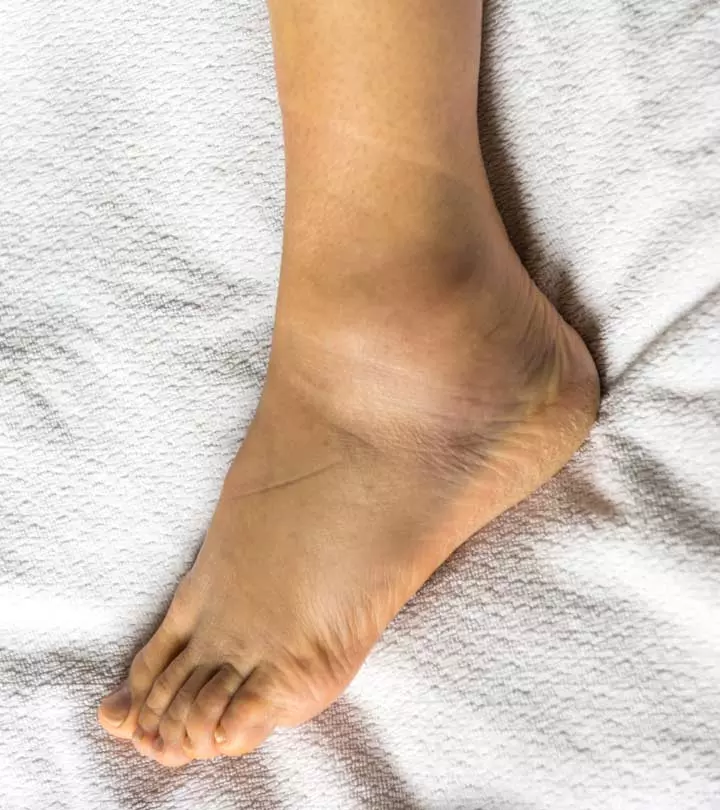











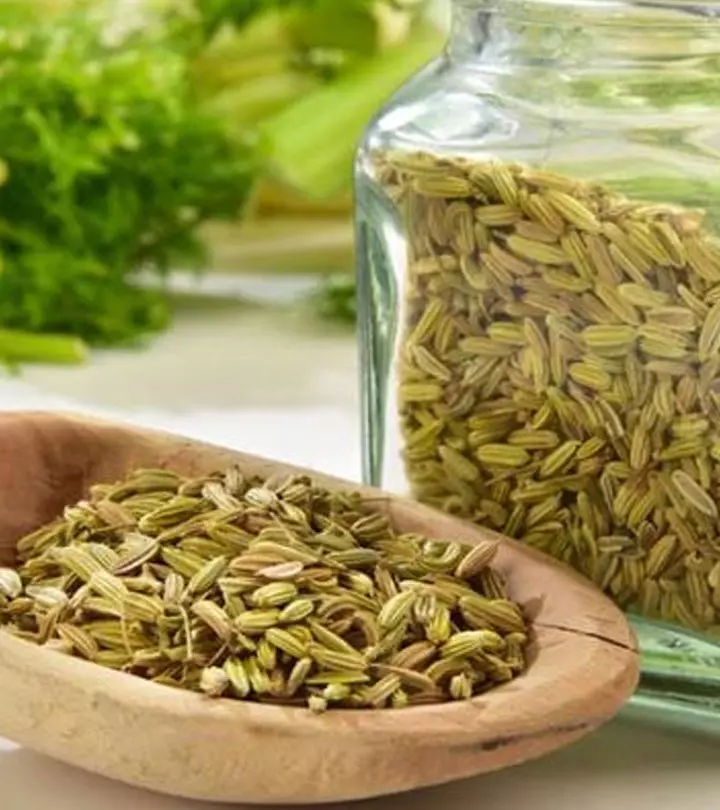







Community Experiences
Join the conversation and become a part of our empowering community! Share your stories, experiences, and insights to connect with other beauty, lifestyle, and health enthusiasts.